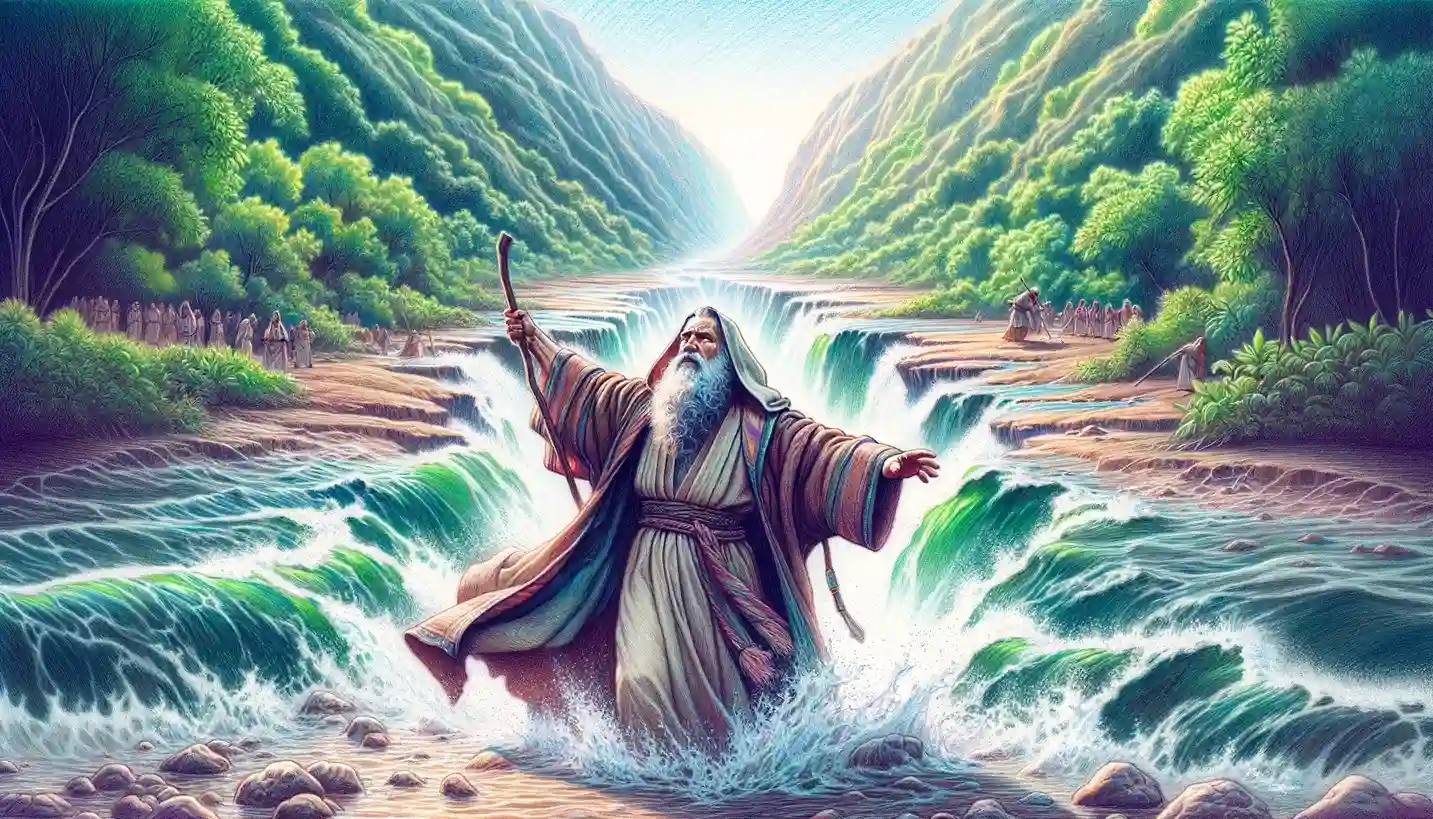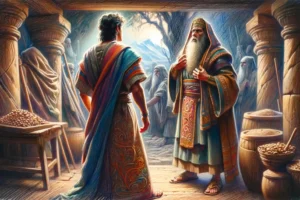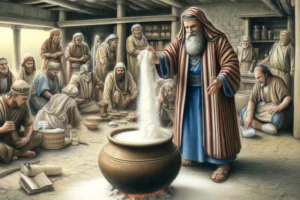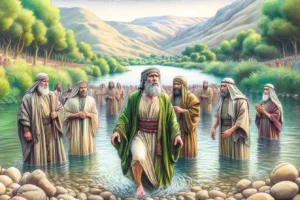
The Parting of the Jordan River by Elisha
The parting of the Jordan River by Elisha in 2 Kings 2:14 is a significant biblical event that mirrors the acts of his mentor, Elijah, and showcases Elisha’s role as a powerful prophet. Here are some quick facts about this event:
- Mirroring Elijah: Elisha’s parting of the Jordan River occurs immediately after he inherits Elijah’s mantle, symbolizing his succession as the lead prophet.
- Symbol of Transition: The act occurs when Elisha strikes the waters with the mantle that fell from Elijah, and the waters part, allowing him to cross on dry ground. This mirrors Elijah’s earlier parting of the Jordan before being taken up to heaven.
- Affirmation of Prophetic Authority: The parting of the Jordan serves as a public affirmation of Elisha’s authority and the transfer of prophetic power from Elijah, as observed by the company of prophets from Jericho.
- Divine Power: This miracle underscores the theme that the power of God, which was with Elijah, is now with Elisha, continuing the divine work through a new prophet.
- Symbolic Location: The Jordan River holds deep spiritual significance in the biblical narrative, previously being the site where the Israelites, led by Joshua, entered the Promised Land.
The parting of the Jordan River by Elisha, described in 2 Kings 2:14, is a critical event that both marks the succession of Elisha after Elijah and serves as a clear demonstration of God’s ongoing involvement with the prophets of Israel. This event is rich with symbolic and theological significance. Here’s a comprehensive analysis:
Context and Background
The parting occurs immediately after the dramatic ascension of Elijah into heaven witnessed by Elisha. Having received Elijah’s mantle as a symbol of the transfer of prophetic authority, Elisha approaches the Jordan River, the same barrier that he and Elijah had miraculously crossed earlier (2 Kings 2:8). The return journey serves as the first test of Elisha’s role as Elijah’s successor.
Theological Themes
Continuity of Prophetic Power: The miracle serves as a divine confirmation that the power which rested upon Elijah now resides with Elisha. This continuity is essential for maintaining the authority and recognition of the prophetic office among the people and the community of prophets who witness these events.
Divine Empowerment: The act of parting the waters with the struck mantle symbolizes divine empowerment. It indicates that the source of the miracle is not the prophet himself but the God who authorizes and empowers the prophet.
Validation of Ministry: By replicating the miracle performed by Elijah, Elisha’s ministry is validated in the eyes of the prophetic community, who declare, “The spirit of Elijah rests on Elisha” (2 Kings 2:15). This acknowledgment by his peers is crucial for establishing his leadership.
Symbolism and Literary Devices
Symbolism of the Jordan River: The Jordan River is a significant geographical and spiritual symbol in the Hebrew Bible. It represents boundaries and transitions, notably used during the Israelites’ entry into the Promised Land under Joshua’s leadership. Elisha’s crossing echoes this earlier event, reinforcing themes of divine guidance and provision.
Elijah’s Mantle: The mantle represents the authority and spirit of Elijah’s prophetic office. Its use in parting the Jordan is symbolic of the tangible passing of this authority from master to disciple.
Historical and Cultural Context
In the historical context of Israel, the acts of the prophets often served as both religious and political statements. Miracles like parting the Jordan would affirm to the Israelite society that Elisha was the legitimate successor of Elijah, essential for the prophet’s acceptance and efficacy in a time of royal apostasy and widespread idolatry.
Conclusion
The parting of the Jordan by Elisha is more than a miraculous crossing; it is a profound affirmation of God’s ongoing presence and power within Israel through the prophetic succession. This event marks the beginning of Elisha’s distinct but continuous prophetic ministry following Elijah, emphasizing that the work of God transcends individual prophets and continues through their successors. This narrative serves as a powerful theological statement about leadership, authority, and divine endorsement in the prophetic traditions of Israel.
Leave A Reply
You must be logged in to post a comment.




1 Comment